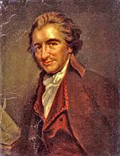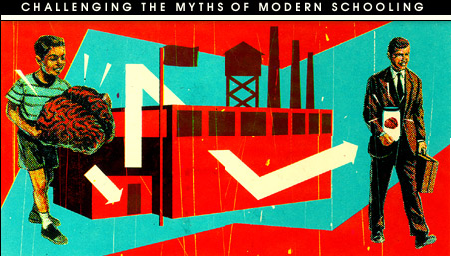

|
 |
From the Earth to the Moon __ 10/10
|
Please go to the new Coffee Coaster site implemented more gracefully in Wordpress. This page: http://brianrwright.com/CoffeeCoasterBlog/?p=7157 |
Cast: One Hundred-Plus Happy Hollywood
Knowns and Unknowns
President John F. Kennedy: I believe that this nation should commit itself to achieving the goal, before this decade is out, of landing a man on the Moon and returning him safely to the Earth. No single space project in this time period will be more impressive to Mankind, or more important for the long-range exploration of space. And none will be so difficult or expensive to accomplish.
In searching my memory banks for a movie or miniseries of this much 'scope and hope,' the only thing that comes to mind is another Tom Hanks' production, John Adams, reviewed on these pages several weeks ago. As in that more recent tour de force, From the Earth to the Moon features superbly acted episodes of extraordinary depth and nuance about an era that came to signify what it means to be American (and human)... at least for a significant minority of individual strivers and would-be strivers inhabiting the planet at the time.[1]
The military defense rationale for the US government getting into space—the threat of the Russians—was little more, I think, than a ploy by the elites to drum up business for an ailing aerospace-engineering welfare-warfare system. The Apollo Program and the Space Program were/are admittedly like any other public works project: the state takes money at the point of a gun from 'this person here' and hands it to 'that person there'... just like being robbed in the parking lot (only the government keeps coming back for more and insisting it's doing us a favor!).
What happened is an example of unintended consequences of another kind: the program became a democratic/entrepreneurial/ patriotic/show-business hit with "the customer." (A reasonable analogy is GM's decision in the early 2000s to make a prototypical electric car for "political fat-cat-relief and corporate-image" reasons. GM—which is analogous to a bloated government—turned the project over to a group of dedicated engineers, who made a car that every driver fell in love with.[2]) In both instances, "the people" came to feel at one with the technology and the goals of the program; the program became at least spiritually theirs.
Hanks' series is all about Space qua the People's Program—with an American sense of pride yet a global embrace—that pulled off the greatest technological achievement in history: the first step toward moving the species into space. Here's a summary of episodes:
Part 1: Can We Do This?—Inspired by the Russians launching the first man into space, JFK gives the famous moon speech, and the Mercury Program is launched May 5, 1961. The Original Seven astronauts become national heroes. Good dramatic consideration of the politics and the risks and magnitude of the tasks that lay ahead for those conceiving the program.
Part 2: Apollo 1—On January 27, 1967, in preparation for Apollo 1, astronauts Gus Grissom, Ed White, and Roger Chaffee undergo a routine test in the space capsule... which turns into a fire and the tragedy of their deaths. Some great acting as key members of the Apollo astronaut corps, especially Frank Borman, testify before a Senate committee how we need to put the disaster behind us.
Part 3: We Have Cleared the Tower—Wally Schirra, Donn Eisele, and Walt Cunningham—the Apollo astronauts became the "New Nine"—are the crew of Apollo 7, the first trio of Americans in space. A young journalist, working on a documentary, follows them through their arduous preparations. Apollo 7 was the first real flight of significance following Apollo 1, and everyone was nervous.
Part 4: 1968—In a year marked by war protests and the assassinations of Martin Luther King and Bobby Kennedy, it appeared Russia was preparing to send a man to the moon. Frank Borman, Jim Lovell, and William Anders are scheduled for Apollo 8, which will reach the moon and remain in lunar orbit. The consequence: the first sighting of the earth from the moon, giving humankind a sense of "we're all in this together."
Part 5: Spider—As a mechanical engineer by college training (and in my early career moves), part 5 is my second favorite of all the Hanks' FETM moon stories. It details the conception, design, and manufacture of the Lunar Module or LEM... by Grumman Corporation. Every true engineer lives to be part of a creative enterprise like this remarkable one.
Part 6: Mare Tranquilitatis—The Sea of Tranquility, part 6 is the dramatic treatment of the men and mission of Apollo 11, the first landing of men on the moon. Who can forget where they were on July 20th, 1969, when Neil Armstrong— the crew also includes Buzz Aldrin and Michael Collins—tells us about a "small step."
Part 7: That's All There Is—Re: Apollo 12 and its unique crew of Al Bean, Pete Conrad, and Dick Gordon... told principally through the narrative of Al Bean. This is one of the lighter pieces in the FTEM series, as one might imagine from lying in the aftermath of the history-making journey of its predecessor. Part 7 is an indication of Hanks' success in giving us "something we never thought of" in every chapter.
Part 8: We Interrupt this Program—I've reviewed Apollo 13 already, and consider it one of my multiply watched 10 best films of all time. Quite amazing to see the corollary segment in FTEM, which has a unique perspective on The Press... which at that point was racing away from its traditions of intellectual rigor and hard news toward fast-feed emotional content bringing tabloid profits to fat corporate poobahs. Compelling.
Part 9: For Miles and Miles—Probably the most individualistic account in the FETM series, it recounts how Alan Shephard, the first American in space (Mercury: Freedom 7) attempted to stay on the active list of astronauts for the Apollo missions. Then an inner-ear disorder afflicts him, he has experimental surgery, and thru an immense output of true grit he finally walks on the moon courtesy Apollo 14, at the age of 47.
Part 10: Galileo Was Right—This one is for the scientists and those who revel in the joys of discovery. Virtually all the astronauts are from the test-pilot and engineering fields; this episode shows what measures were required to bring a true teacher into these astronauts' training—the main discipline being geology. I enjoy this episode particularly for its distillation of two attributes responsible for the Ascent of Man: intellectual curiosity and imagination.
Part 11: The Original Wives' Club—Must admit this one is my personal favorite, because I'm fascinated by the more quiet struggles of heroism—the heroes behind the heroes, the women who nurture and take care of the humanity behind being a "great man" in the public eye. Wonderful performances, especially by the actresses who play the wives of Ed White, Jim Lovell, and Frank Borman (Jo Anderson, Rita Wilson, and Elizabeth Perkins). What insights into the times! It's also a bit of a tearjerker. Sally Fields directs this part.
Part 12: Le Voyage Dans La Lune—Apollo 16 and Apollo 17 were fundamentally scientific missions, chiefly concerned with determining the moon's geological history in different regions. The story of 17—the ultimate mission in space up to that time—is paralleled with the vision of an early 20th-century French filmmaker, George Melies, the first man to make the idea of going to the moon a public phenomenon. Thomas Edison and others pirated Melies' film, A Trip to the Moon, and made millions from showing it in America; Melies made relatively nothing.
Which in a way brings us full circle back to the issue of How the Grinch Stole Christmas—or how the state-corporate power messes everything up that's good... even something as beautiful as the ambitions of mankind to explore and develop space for humane reasons. No don't worry, I'm not going to go on another rant, but I will suggest that had the space program been organized as a voluntary, citizen-funded enterprise—wholly non-corporate—that enterprise (however the people decided to compose it and fund it) would be thriving now as we speak. (Further, it would serve as a model for any future heroic endeavor: if something is worth doing for the majority of the people, the majority of the people will find a way to cooperate to do it.)
Hanks has the series end with fitting words of hope. My feeling is his approach—bringing the subject to us as high drama—is far more meaningful than the latest more fully documentary treatment in When We Left Earth. WWLE is also a fine achievement, but more like watching your favorite sports team as an analyst rather than an enthusiastic fan. No question From the Earth to the Moon belongs in a time capsule along with Apollo 13 (and John Adams); this heroic stretching of consciousness is what the best of humanity aims for and works for. It's who we are.
###
[1] Not only strive... achieve! When one gives it longer reflection, accomplishing the feat of Independence and self-government (the key events of the John Adams series) against the strongest corporate/royal tyranny of its time has to outrank the achievement of going to the moon—simply from the advance of consciousness it entailed: "I, Joe Blow, and every other Joe Blow, am free and equal and sovereign and wholly in charge of the government we've created." What could be more exhilarating, and what could have been more violently resisted by the Kleptocons in that age!
So fast forward through years of degradation of the American "Experiment" by the Money Power (and the socialist types, too)
—via wars, central banks, central taxation, information control, and wealth transfer to the Cartel and its associated political classes—to the 1960s. We were still clinging to threads of Constitutional Liberty, when a generally—it's widely unappreciated how JFK attempted to downsize the feds and shut the wealth-spigot to the war machine {which is why the CIA (as I indicated in my review of History Will Not Absolve Us, the term CIA connotes the umbrella secret-society/intelligence-agency cooperative under the aegis of the US government) assassinated him}—libertarian-left president announced the moon goal.
[2] Who Killed the Electric Car?
###
###

Law Enforcement Against Prohibition


 Click banner to order, click here for book review
Click banner to order, click here for book review
 Click banner to order, click here for book review
Click banner to order, click here for book review
 |
 |
|||
| |